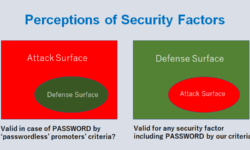Dr. Hossam Morsy, a Lecturer and Trainer in Cyber-Crimes Investigation and Internet Safety from Police College, Egypt, participates in Risk Roundup to discuss Cyber Blackmail.
Cyber Crime and Cyber Blackmail
Advances in cyberspace technology deeply entangle individuals and entities across nations: its governments, industries, organizations, and academia (NGIOA). While cyberspace brings us a new ecosystem, our individual and collective dependency on cyberspace technology, also brings us critical security risks that are proving extremely difficult to eliminate.
With the advances in science and technology, cyber-crime and blackmail are evolving. As society continues to evolve and technology marches forward, connecting cyberspace to geospace and space, our understanding of the origins of criminality and blackmail also evolves and must be continuously revised. Therefore, the persistence, prevalence, and seriousness of cyber-crime and blackmail offending demands a greater response from not only the security community but from everyone across nations.
It is believed that if you can imagine a form of theft, fraud, or exploitation, it is probably now being perpetrated or abetted by a computer. As a result, it is important to understand what kind of acts in cyberspace are classified as cyber-crimes and what constitutes blackmail and who is the target.
Why is it important to understand Cyber Blackmail?
Today, because of cyberspace, any form of theft, fraud, or exploitation can probably be perpetrated, programmed, or backed by a computer. As a result, today and every day, millions of people worldwide are being victimized by some sort of computer crime. Moreover, as everything gets digitized, and it becomes increasingly easier to share every aspect of our lives on social media, the probability of private matters getting into the hands of criminals and bad people with bad intentions is increasing rapidly. As a result, cyber-blackmail is on the rise across nations.
Cyber intrusions, cyber-crimes, and cyber blackmail are becoming more commonplace, more dangerous, and more sophisticated. Moreover, the ease with which cyber-crime and cyber blackmail cross national borders, and the deceptions that are employed by cybercriminals, obstruct their identification and attribution in cyberspace and geospace. To add to the complexities, the lack of standards and conflicting legal frameworks from across nations prevents cyber-crime forces from identifying and interrogating cyber-crime suspects and catching them in a timely manner.
When the growing cyber-crimes include blackmail that involves harassment, malicious mischief, manipulation, abuse, extortion and so much more, it is understandably becoming a cause of great concern. Time is now to understand and evaluate Cyber Blackmail.
________________________________________
For more please watch the Risk Roundup Webcast or hear the Risk Roundup Podcast
________________________________________
About the Guest
Dr. Hossam Morsy, a Lecturer and Trainer in Cyber-Crimes Investigation and Internet Safety from Police College, Egypt is an experienced investigator with a demonstrated history of working in the law practice industry. He is skilled in Crisis Management, Government, Emergency Management, Law Enforcement, and Physical Security. In addition, he is a strong human resource professional with a Research Doctorate focused on cybercrimes investigation from the school of law.
About Risk Group
Risk Group is a leading strategic security risk research and reporting organization.
Copyright Risk Group LLC. All Rights Reserved





 Investigating Cyber Crimes
Investigating Cyber Crimes